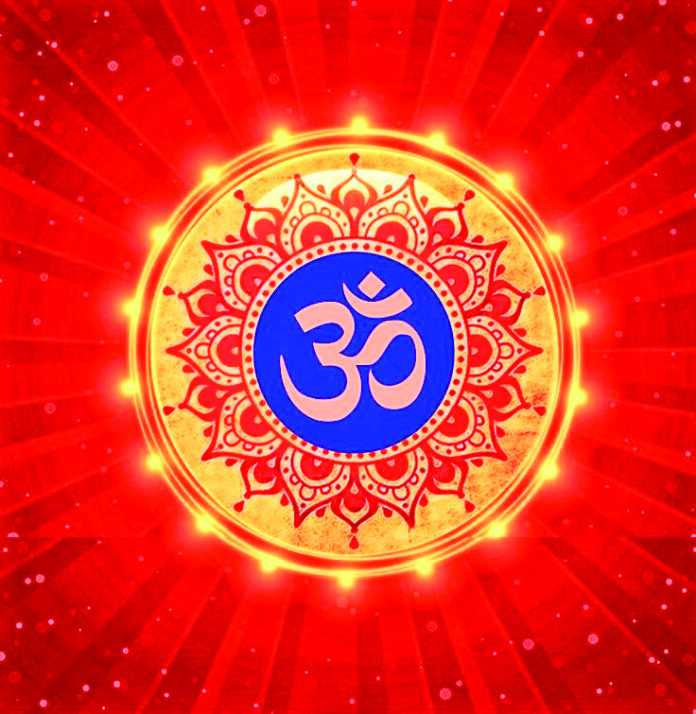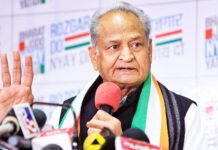Allies must be found. Choices must be made. For dharma to act decisively, it must be an appropriate time too.
MANIPAL: The question of why dharma, or righteousness, often seems slow to prevail has echoed through civilizations. For many, this delay feels perplexing or even unjust. People suffer, wrongdoers appear to thrive, and justice remains out of reach. Is delayed justice, then, a form of denied justice? Hindu philosophy, and similar reflections in other traditions, suggest otherwise. What appears as delay is often a precise and necessary process of moral rebalancing.
DHARMA OBEYS THE LAWS OF TIME AND CAUSALITY
In the Bhagavad Gita (4.7-8), Sri Krishna declares: “Whenever there is a decline in dharma and a rise in adharma, O Bharata, I then manifest myself. I appear age after age, to protect the righteous, to destroy the wrongdoers and to establish dharma.”
However, this promise is not one of immediate action. Like any system governed by cause and effect, the response unfolds within the boundaries of time and readiness. In the Ramayana, Rama does not confront Ravana immediately after Sita’s abduction. Instead, events must mature. Allies must be found. Choices must be made. For dharma to act decisively, it must be an appropriate time too. Similarly, in the Mahabharata, the prolonged exile, humiliation and moral trials of the Pandavas precede the great war. These are not delays, they are part of the preparation that dharma requires before it can act decisively.
Comparable patterns exist in other traditions. The Israelites in the Bible endured generations of bondage before liberation. Their prayers were heard, but their release was timed to coincide with the emergence of a leader, Moses, and the readiness of the people.
From a broader perspective, such timing is not a delay, but precise timing.
HUMAN FREEDOM AND KARMA MUST PLAY OUT
Hindu philosophy emphasizes karma—where actions, words, and intentions create outcomes, either in this life or a future rebirth. Dharma functions within this moral architecture. It does not override human choice but responds to it.
When adharma rises, it is often the outcome of accumulated actions. If it were erased too quickly, that would disrupt the moral continuity of karma. Kamsa, for instance, ruled Mathura with tyranny for many years. Though the prophecy of his end was known, his fall did not come swiftly. The people suffered, and Krishna was born and raised far from the palace. It took over two decades before Kamsa was confronted. This long wait was not negligence—it was the unfolding of karma in real time.
Similarly, Ravana’s Lanka prospered materially but was spiritually imbalanced. It required not just a correction but a systemic reset—which came only through the exile of Rama and a great war to restore dharma. And in the Mahabharata, Duryodhana’s manipulation and injustice went on for years. Acts such a Draupadi’s humiliation and the exile of the Pandavas eroded the moral fabric of society, and the citizens of Hastinapura witnessed daily injustice. Yet, dharma acted only when the conditions had matured—and it corrected not just the leadership, but the entire structure of power.
DHARMA IS TESTED, NOT IMPOSED
If dharma always prevailed instantly, there would be no room for personal effort, moral courage, or spiritual discernment. Dharma must be chosen—it cannot be forced. Adharma, in this sense, becomes the context in which dharma is tested and revealed.
The Ramayana is not only about Rama’s actions. It is also a record of Bharata’s renunciation, Lakshmana’s loyalty, Sita’s patience, Hanuman’s devotion and Vibhishana’s moral courage. Each individual’s response to difficulty contributes to the affirmation of dharma. Had their trials been short-circuited, the moral weight of the story would have been lost.
Other traditions echo this. In Christianity, Jesus accepts suffering. He walks into it, embodying sacrifice, forgiveness and trust. He does not promise justice now, but calls for patient endurance. In Islam, the Prophet Muhammad and the early Muslims endured a decade of persecution in Mecca before justice was established in Medina.
These narratives reinforce the same idea: dharma must be realized through human response, not divine imposition.
SUFFERING IS A GROUND FOR AWAKENING
Suffering, though difficult, often precedes transformation. It can create the moral urgency that awakens individuals and societies.
Without Rama’s exile, his life would have remained limited to the boundaries of princely duty; it was in the forest, without royal privileges and immersed in hardship, that his spiritual strength was refined. Similarly, without the unchecked arrogance and persistent adharma of Duryodhana, the battlefield of Kurukshetra would not have become the stage for the Bhagavad Gita—a timeless guide to action, detachment, and devotion. In Sikhism, Guru Arjan Dev and Guru Tegh Bahadur accepted suffering not out of weakness but as a witness to truth. Their sacrifices infused strength into the Sikh community.
Likewise, the long periods of foreign rule in India saw systematic oppression. Under both Mughal and British rules, there are many accounts recording the instances of religious persecution, forced conversions, famines and exploitation. The independence of 1947 from British rule was not sudden; it emerged from centuries of shared suffering, national awakening and unyielding resistance of generations—from Rani Lakshmibai and Gokhale to Gandhi, Patel, and countless others.
Even on the world stage, the Holocaust—during which six million Jews were murdered under Adolf Hitler’s regime—exposed the dangers of hatred and triggered the global recognition of human rights. More recently, the displacement of Kashmiri Pandits, struggles of Tibetan Buddhists, and genocide of Yazidis reveal that suffering continues to challenge our collective conscience.
We may also reflect on the roles of individuals like Kamsa, Ravana, Hitler and others. Their lives, while marked by adharma, provoke the emergence of dharma. Perhaps their existence serves to awaken the society, to activate the moral courage that lies dormant. In that sense, their role is paradoxically constructive. The suffering they cause may be seen as the symptom that necessitated a surgery to correct the disease.
TIME IS NOT UNIFORM
Justice seems delayed only when viewed through the lens of human impatience. From a cosmic perspective, time is neither linear nor uniform.
In Hindu cosmology, divine beings operate on a vastly different time scale than humans. One day of Brahma—the creator—spans 4.32 billion human years. One year in the realm of Devas equals 360 human years. What seems a lifetime to humans may be a moment in the divine process.
Even within the solar system, each planet experiences years of different lengths. A year on Mercury is as short as 88 Earth days, while a year on Neptune is as long as 165 Earth years. A single day on Venus is longer than its year. What we consider a decade on Earth might be a lifetime on Mercury, or merely a fraction of a year on Neptune. This variation reminds us that time is not an absolute standard.
And on Earth, time is experienced differently by different creatures. For a winged male ant—an insect that lives only a few hours—an entire life just an afternoon of a human. Yet, for the ant, those few hours are not brief or incomplete; they constitute a full life.
Under the laws of the universe, what seems delayed to us may actually be perfectly timed. Waiting should be seen in this light. In a world where time moves differently – whether in spiritual, biological or cosmic terms – what matters is not how fast justice comes, but whether it comes at a time when it can truly last.
Dharma operates on a time scale that is beyond our immediate perception.
CONCLUSION: DELAYED BUT NOT DENIED
Dharma takes time to triumph because it honours time, karma, freedom and growth. It is not a quick-fix mechanism. It is a principle that intertwines personal choice with divine orchestration.
This does not mean people today must simply wait. Dharma calls for thoughtful action – standing against injustice, defending the vulnerable, and refusing to be indifferent. Krishna told Arjuna not to run away, but to rise and act – with discrimination and inner discipline.
Dharma may be delayed, but it is never defeated.
Its strength is not speed, but stability.
When it rises, it restores not only justice, but the very soul of society.
* Dr Shashikiran Umakanth is Medical Superintendent, Professor & Head, Department of Medicine Dr TMA Pai Hospital, Udupi.








